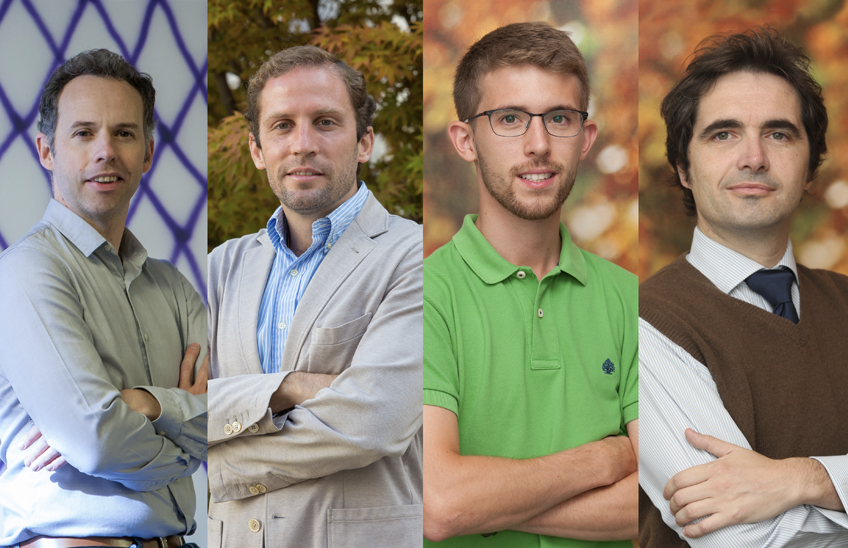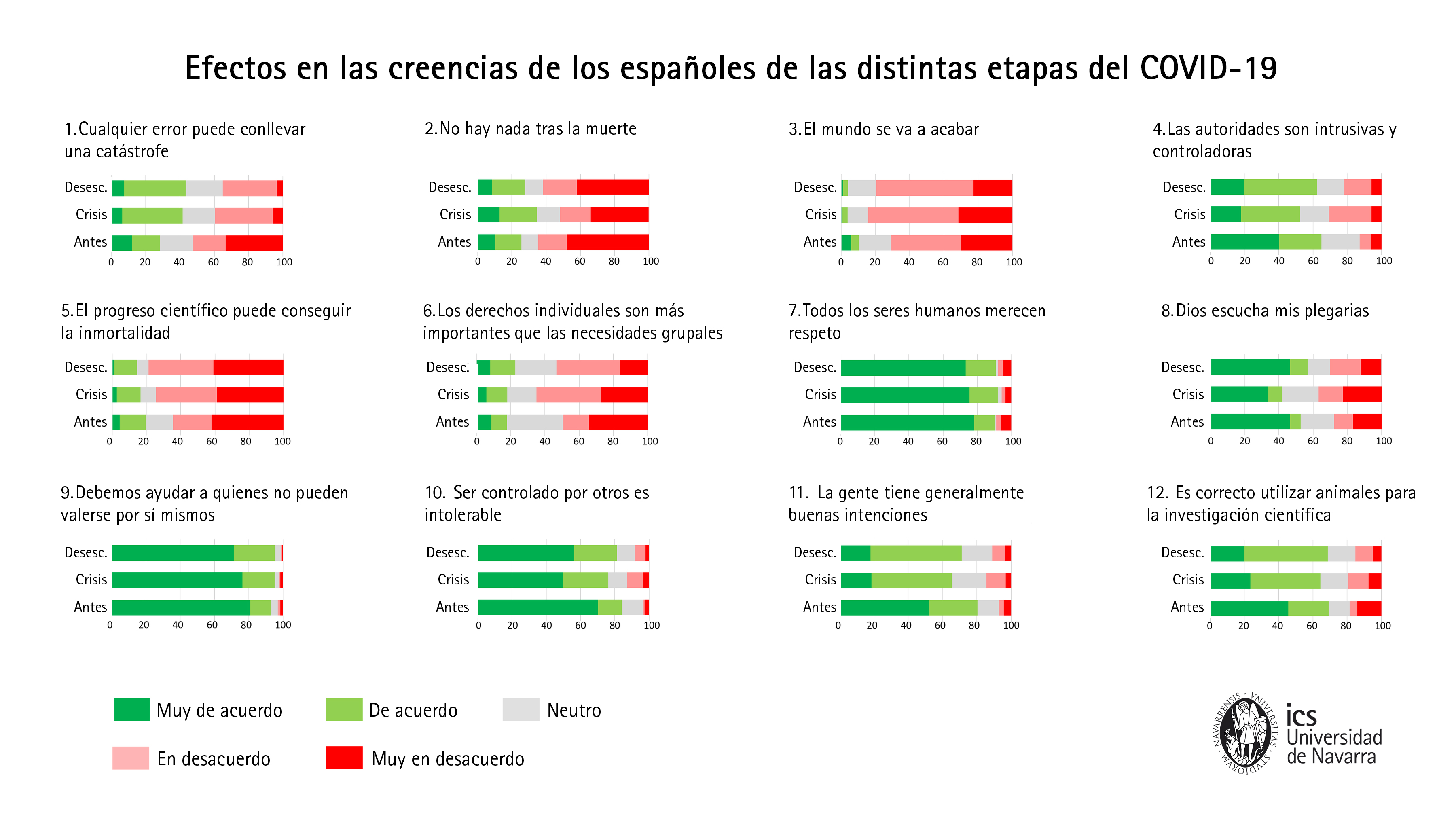The coronavirus crisis has changed Spaniards' views on social relations, transcendental ideas, science and politics.
A University study has surveyed more than 1,700 people to analyse the extent to which their beliefs on confinement and de-escalation have changed.

PhotoManuelCastells/From left to right: Javier Bernácer, Javier García Manglano, Eduardo Camina and Francisco Güell, researchers at the University of Navarra and authors of the study.
27 | 07 | 2021
The beliefs of Spaniards about interpersonal relationships, transcendental ideas, science and politics have changed as a result of the Covid-19 crisis. This is according to researchers of the group 'Mind-brain' of the Institute for Culture and Society (ICS) of the University of Navarra, who have surveyed more than 1,700 people during the confinement and de-escalation.
In terms of tolerance of the authorities' control, the authors report that the population was favourable during confinement, despite the restrictive measures. In de-escalation, the opposite phenomenon was experienced: after several weeks of confinement, more people felt that the authorities were "excessively intrusive" and that such control was unacceptable.
With regard to attitudes towards other citizens, a lack of trust was detected at the beginning of the crisis and an increase in individualistic attitudes in the de-escalation. During de-escalation, participants valued the importance of individual rights over common needs. At the same time, there was an increased acceptance of ideas such as that everyone deserves to be respected. This points to a strengthening of the affective elements of belief systems, the researchers stress.
Likewise, transcendental beliefs were strengthened in the de-escalation. In particular, those who had had a sick family member were more likely to agree with propositions such as that there is an afterlife or that God listens to prayers.

Increasing political polarisation
The results suggest that changes in transcendental and social ideas are directly related to policy preferences. One example concerns the belief that the authorities are intrusive. Before the pandemic, 84% of left-wing voters believed this to be true.
However, at the onset of the crisis and in the de-escalation more than half of left-wing sympathisers were permissive towards the government, while issue of right-wing voters who thought there was too much control increased. On the other hand, transcendental beliefs were attenuated among left-wing sympathisers, while they hardly changed for right-wing sympathisers.
The researchers argue that political influence is of great relevance as a joint response by citizens and authorities is needed to curb the pandemic. They conclude that the government must be aware of its influence on society in order to promote responsible behaviour.
The study Polarization of beliefs as a consequence of the COVID-19 pandemic: The case of Spain has been published in the prestigious open access journal PLOS ONE. It is part of the doctoral thesis of Eduardo Camina, PhD student of the School of Education and Psychology and partner of the group 'Mind-brain' of the ICS. Also signing the article areJavier Bernácer, researcher of the ICS and director scientist of the International Centre for Neuroscience and Ethics (CINET) of the Tatiana Pérez de Guzmán el Bueno Foundation; Javier García Manglano and Francisco Güell, both researchers at the ICS.
